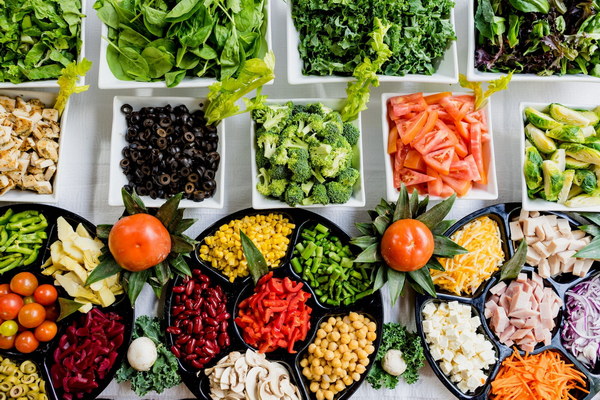PostDinner Eating A Holistic Approach to Health and Wellbeing
In the hustle and bustle of our daily lives, finding time to focus on our health can often be overlooked. However, one aspect that we can control is our eating habits. Post-dinner eating, in particular, plays a crucial role in maintaining our overall health and well-being. By understanding the science behind it, we can make informed decisions and incorporate healthier choices into our lives. Here’s a closer look at post-dinner eating and its benefits.
1. The Science Behind Post-Dinner Eating
After a heavy meal, our bodies undergo a process called digestion. During this time, the digestive system works tirelessly to break down the food we’ve consumed. This process can take anywhere from 24 to 72 hours, depending on the type and amount of food eaten. Post-dinner eating involves the consumption of certain foods that can aid in digestion, improve nutrient absorption, and promote overall health.
1.1 Probiotics
Probiotics are live microorganisms that, when consumed in adequate amounts, confer a health benefit on the host. Including probiotic-rich foods in your post-dinner meal can help maintain a healthy gut flora. Foods like yogurt, kefir, sauerkraut, and kimchi are excellent sources of probiotics. These foods can help improve digestion and strengthen the immune system.
1.2 Fiber
Fiber is another essential component of a post-dinner meal. It helps in moving food through the digestive system, which can prevent constipation and promote regular bowel movements. Foods like apples, pears, berries, and whole grains are rich in fiber and can be consumed as a healthy dessert or snack after dinner.
1.3 Hydrocarbons
Hydrocarbons are molecules composed of hydrogen and carbon. Consuming foods rich in hydrocarbons can help in maintaining a healthy gut microbiome and may aid in weight loss. Foods like avocados, nuts, and seeds are excellent sources of hydrocarbons and can be included in your post-dinner meal.
2. Health Benefits of Post-Dinner Eating
2.1 Improved Digestion
By consuming probiotics, fiber, and hydrocarbons, you can improve your digestion. A well-functioning digestive system can prevent bloating, gas, and constipation, leading to a more comfortable and enjoyable post-dinner experience.
2.2 Enhanced Nutrient Absorption
Post-dinner eating can also help in enhancing nutrient absorption. Foods rich in probiotics can improve the absorption of vitamins and minerals, ensuring that your body receives the necessary nutrients for optimal health.
2.3 Weight Management
Including healthy post-dinner snacks can aid in weight management. By choosing nutrient-dense foods that keep you feeling full for longer, you can avoid overeating and prevent weight gain.
3. Tips for a Healthy Post-Dinner Eating Routine
3.1 Mindful Eating
Eating slowly and mindfully can help in digestion and prevent overeating. Take the time to savor your food and enjoy the flavors, textures, and aromas.
3.2 Stay Hydrated
Drinking plenty of water throughout the day, including after dinner, can aid in digestion and prevent constipation.
3.3 Avoid Overeating

Limiting portion sizes and avoiding high-calorie, high-fat, and high-sugar foods can help in maintaining a healthy weight and improving overall health.
In conclusion, post-dinner eating is an essential aspect of a healthy lifestyle. By incorporating probiotics, fiber, and hydrocarbons into your post-dinner meal, you can improve digestion, enhance nutrient absorption, and promote overall health. Remember to eat mindfully, stay hydrated, and avoid overeating to maintain a balanced diet and a healthy life.






![Revolutionize Your Beauty Routine Discover the Hidden Gems of Local Skincare Spas in [City Name]!](http://img.bluepurple.cn/a/养生/415/Revolutionize-Your-Beauty-Routine-Discover-the-Hidden-Gems-of-Local-Skincare-Spas-in-City-Name.jpg)


